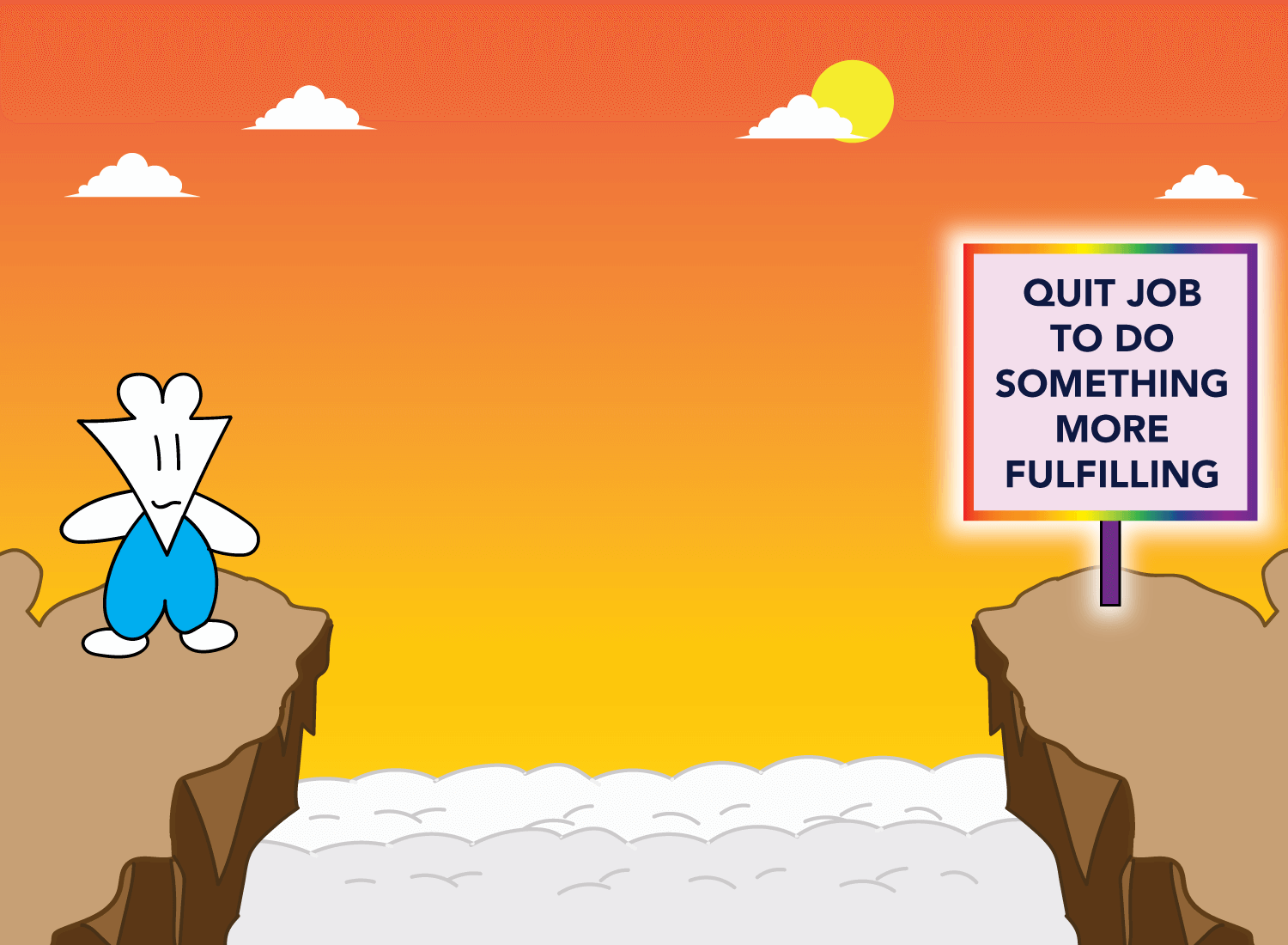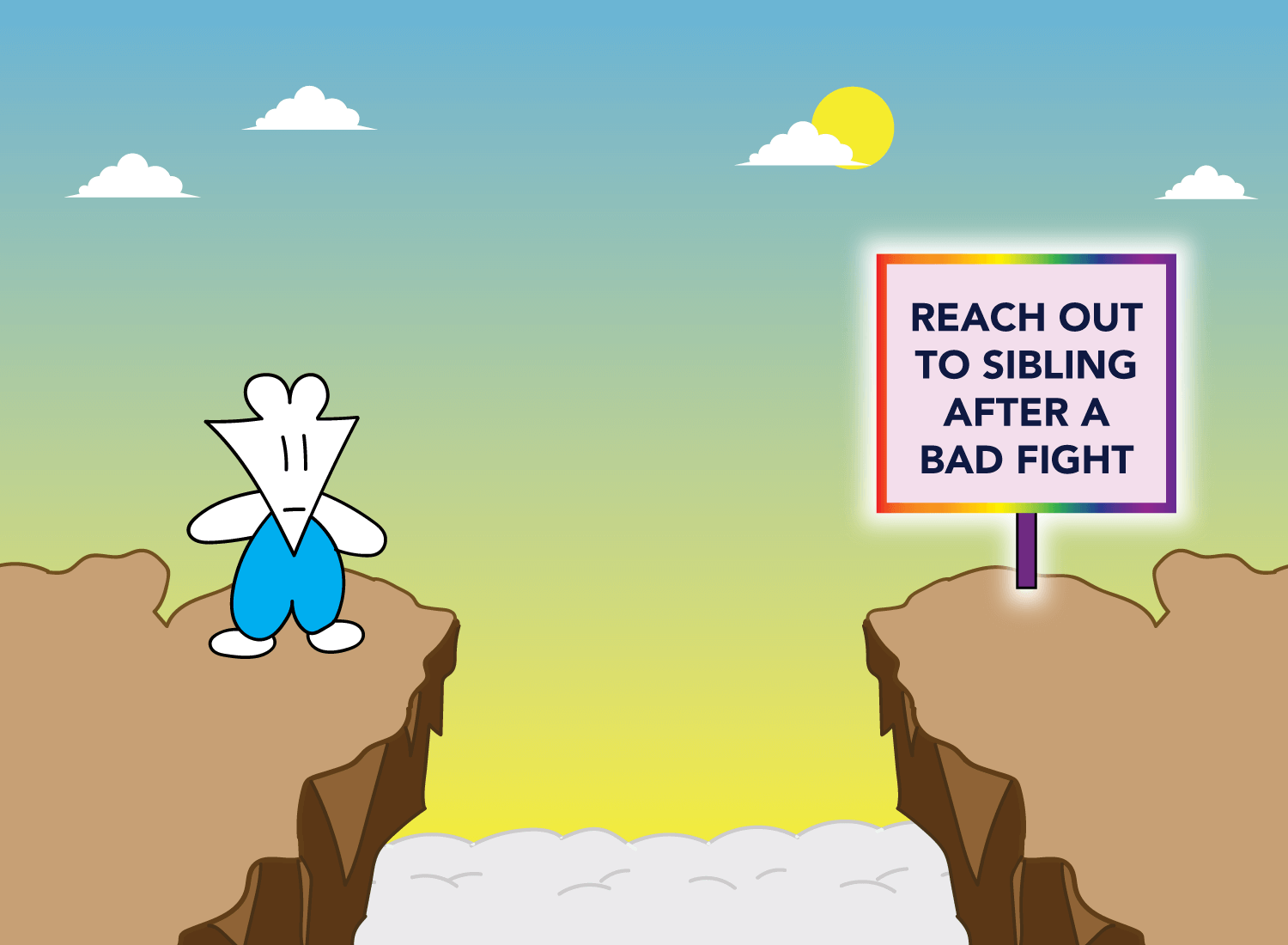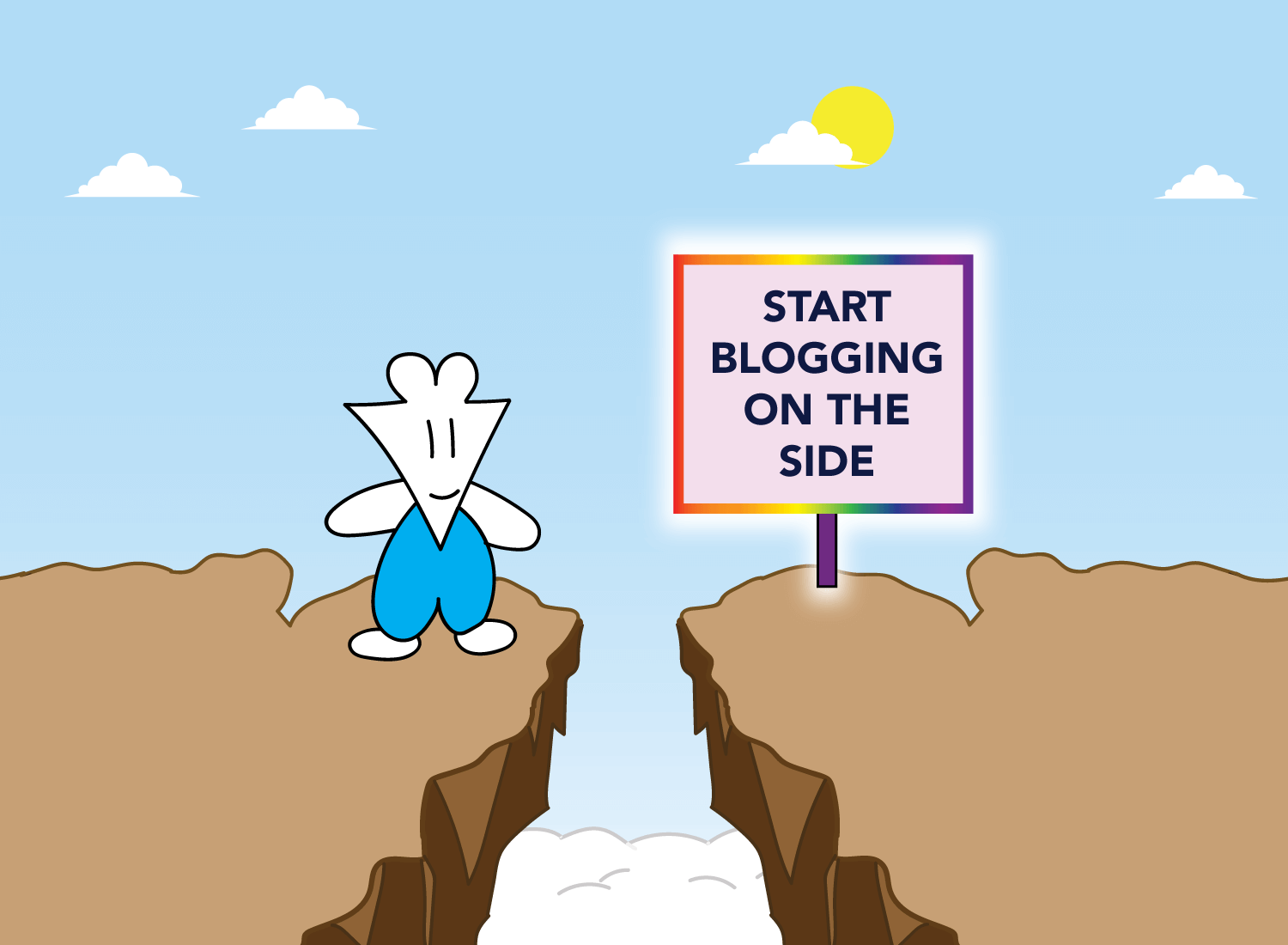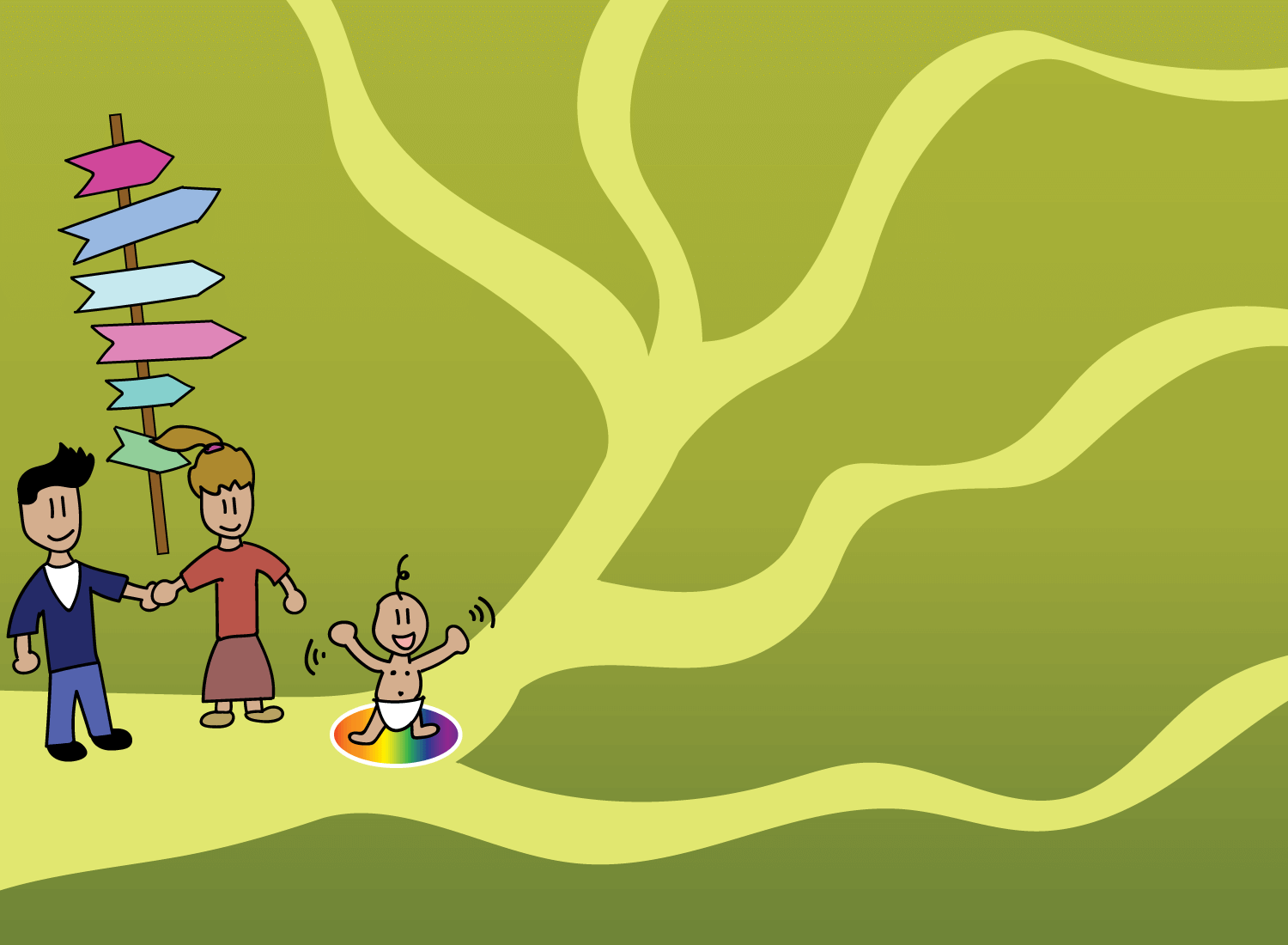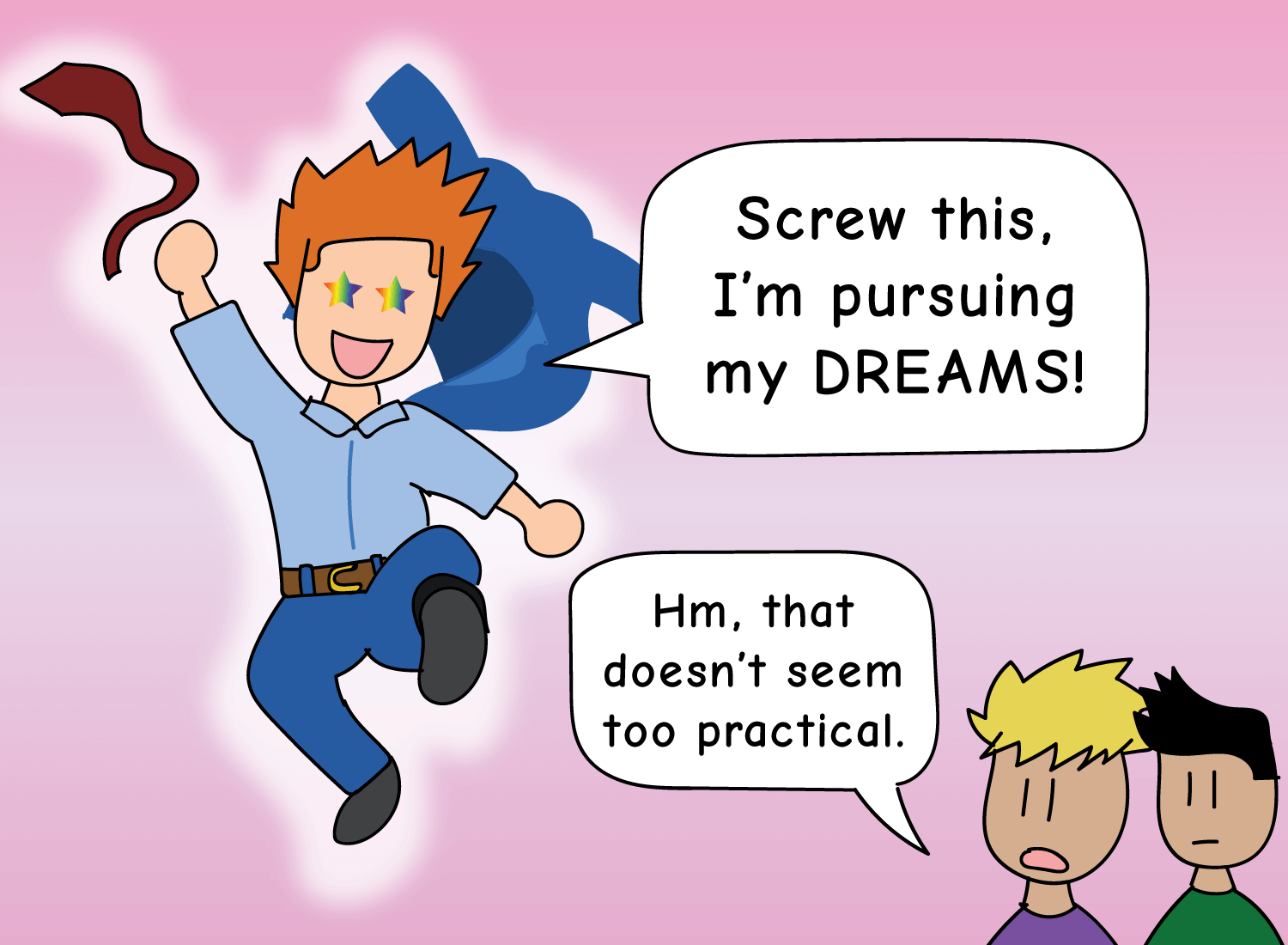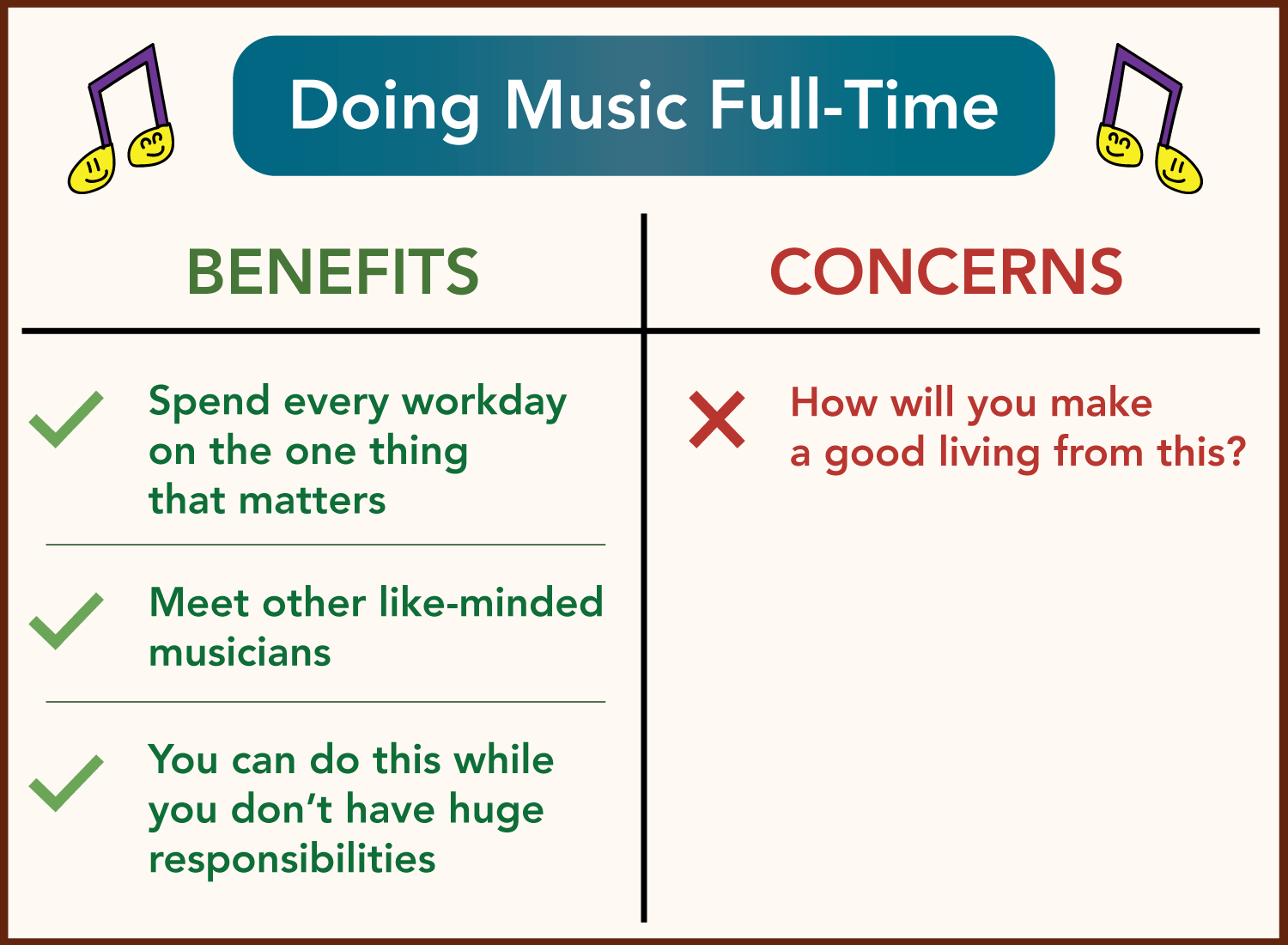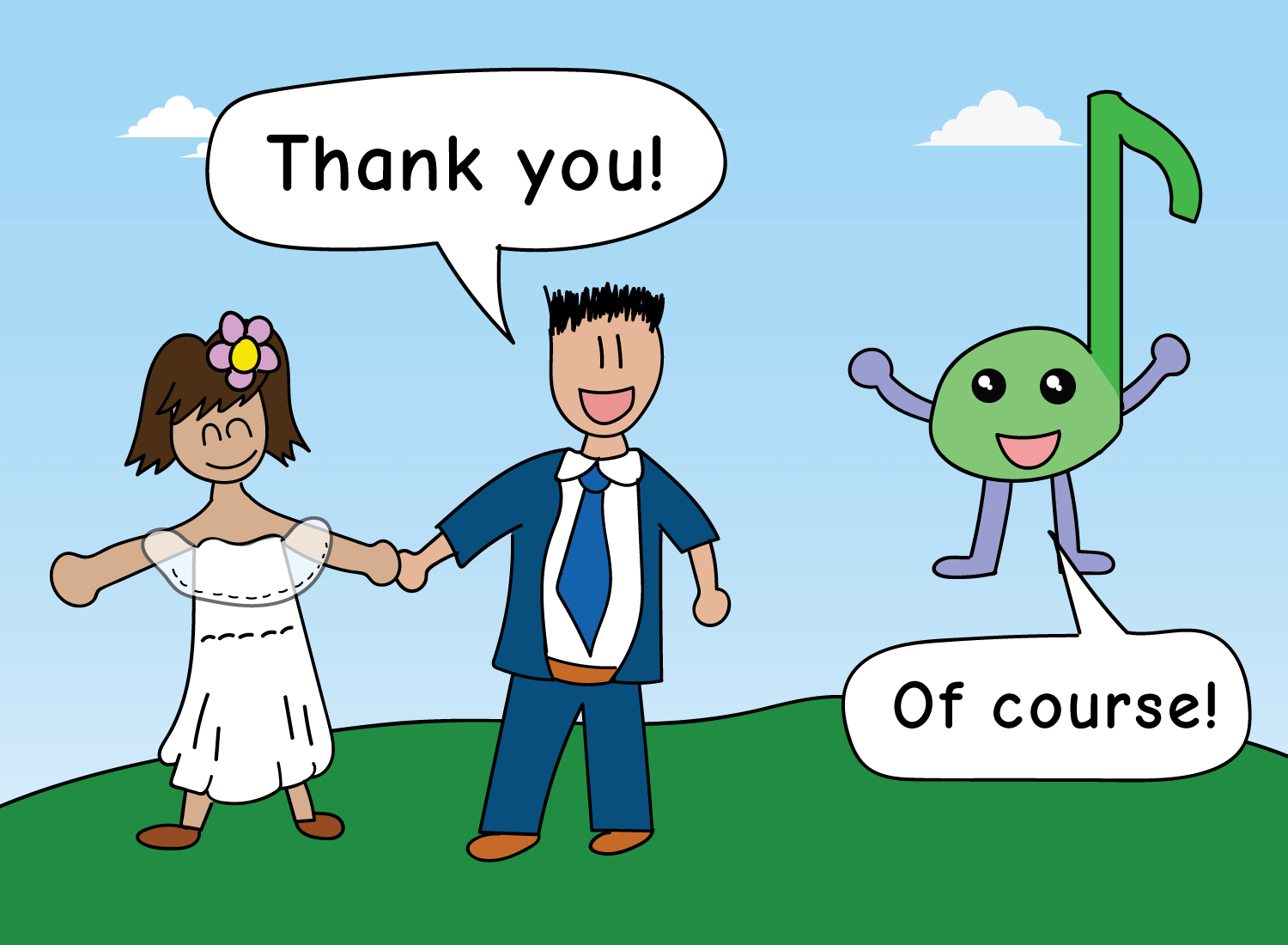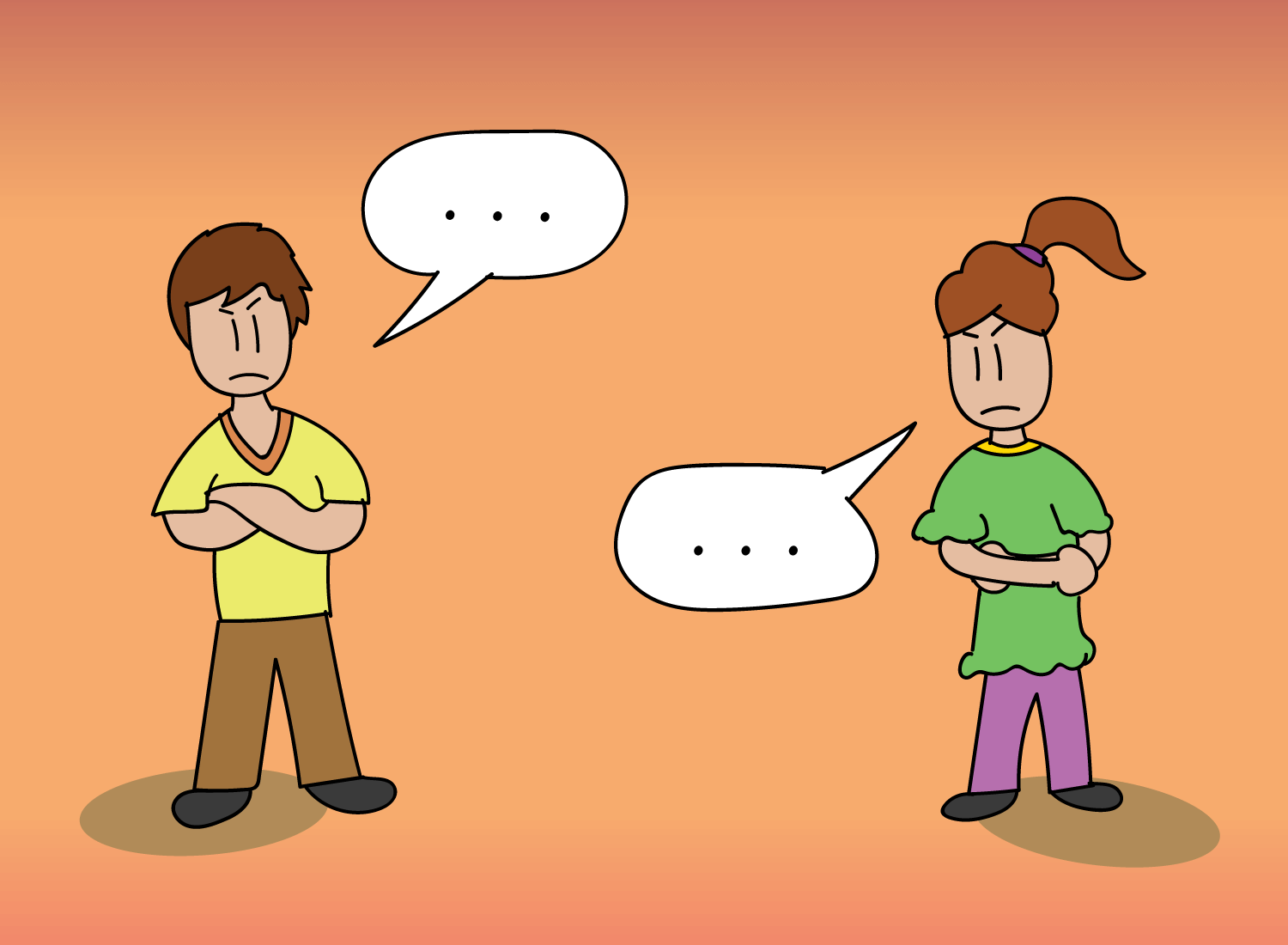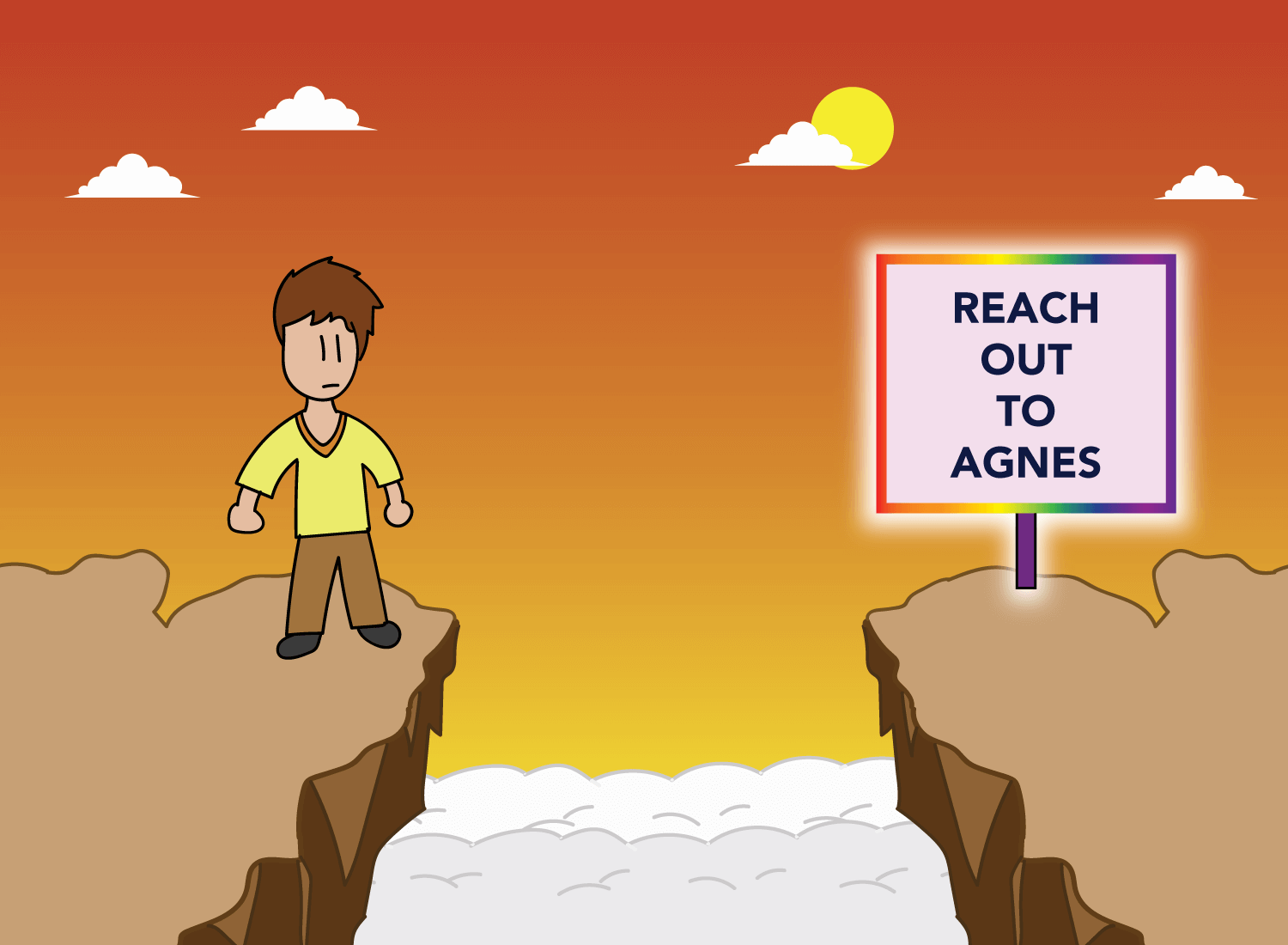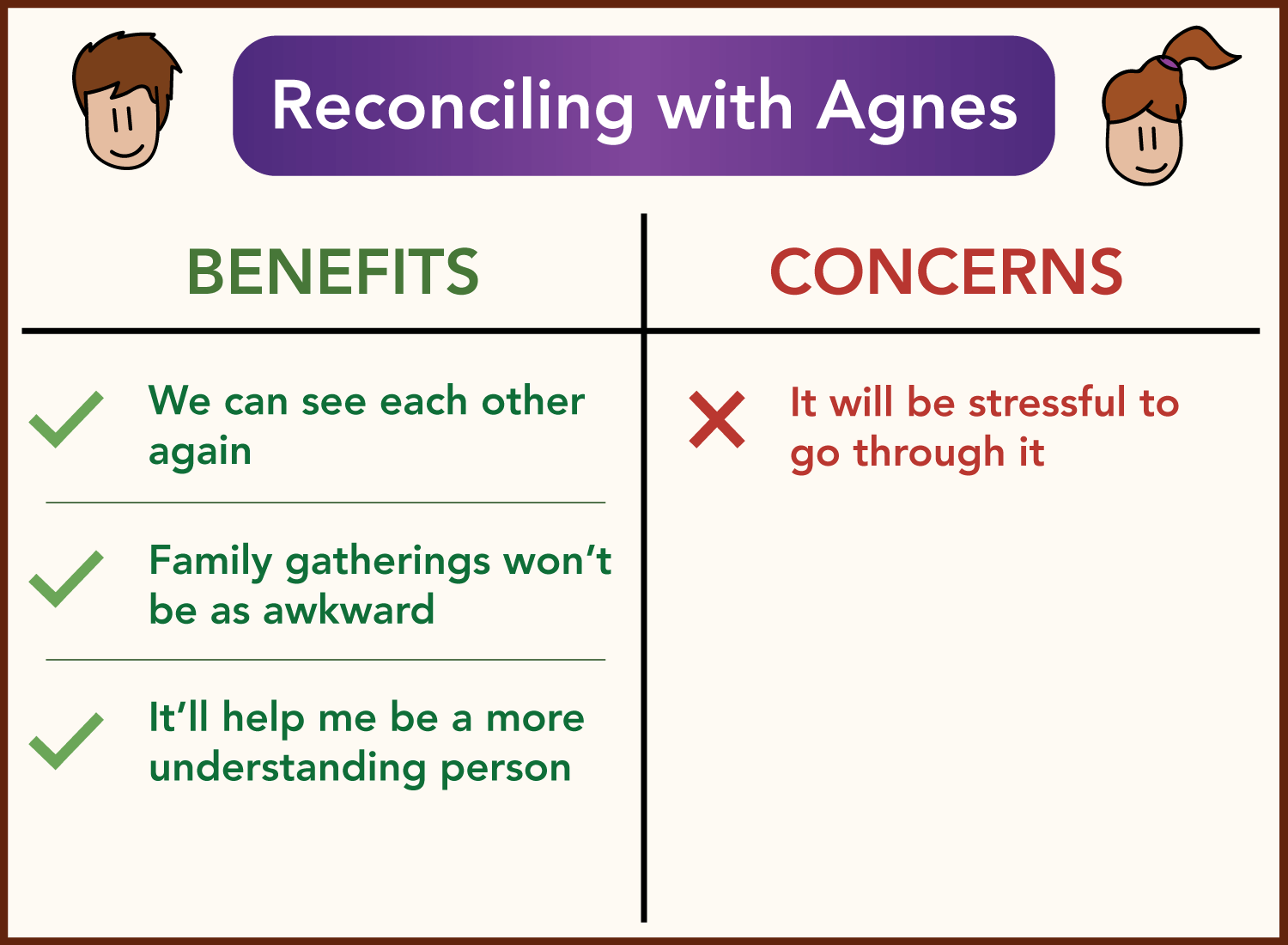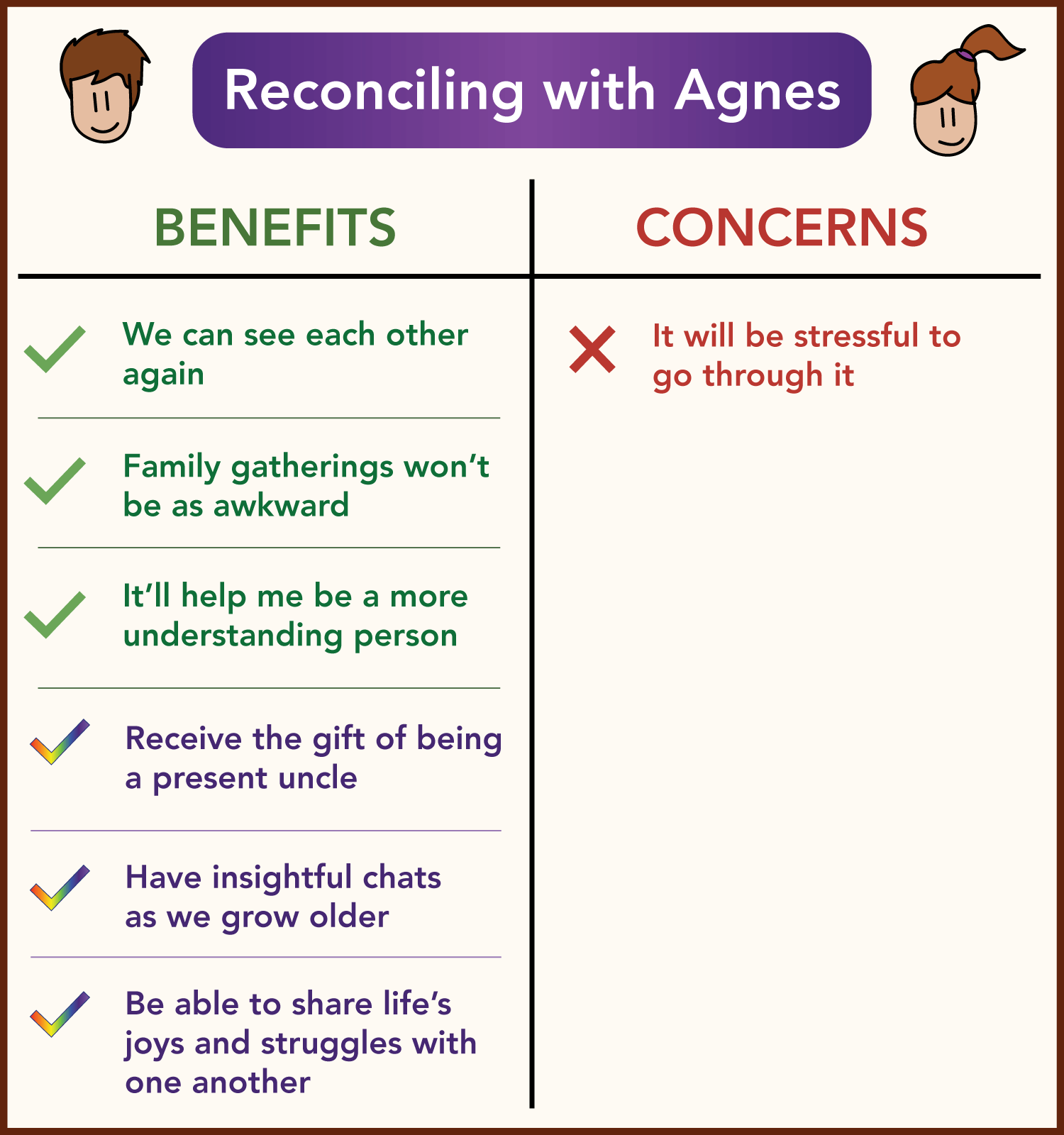The Day You Decided to Take the Leap
Life leaps come in varying distances.
Some feel lofty and risky:
Some are difficult yet manageable:
And some just require a small hop to get started:
Chances are there’s some area of your life where you feel like a leap of some kind is required. Whether it’s personal or professional, the idea of reaching one’s potential is deeply embedded in all of us. This is because humans have the unique ability to take inventory of present attributes, and use them to forecast an optimal life that can be lived in the future.
While one’s potential is not a tangible good, no one would deny the reality of its existence. The reason why babies are so cherished is because of all the bright possibilities that await them; every life path is open, and the world is their oyster. For a moment, no door is closed, and we take joy in seeing them maneuver through a seemingly infinite existence, figuring out what resonates with them and what doesn’t.
As a human being grows into adulthood, however, things shift. Whereas an infant goes through the world with curiosity, an adult is expected to move about with justification. Life choices must be made with analysis, and interestingly, even inaction requires this type of reasoning as well.
When determining whether or not one takes a leap, there seem to be better reasons to not make that jump than to do so. After all, the justified mind is one that understands loss aversion – one that wouldn’t want to trade the comfort and safety of the present moment for an uncertain and rocky future.
Why quit this comfortable job for a risky move into entrepreneurship?
Why call my sister to patch things up when it’s easier to just ignore her?
Why publish essays online when I don’t plan on doing it for a living?
Oftentimes, taking the leap is framed as an irrational thing to do – something that plays more to the emotions than to reason. This is why when someone takes the leap in a professional setting, we dub this phenomenon as “following your passion” instead of “following your rationality.”
But today, I want to argue for the rationality of taking the leap.
Trying to fulfill one’s potential may seem like in a pie-in-the-sky, utopian concept, but it’s become increasingly clear to me that it’s the most sensical thing to do once you frame it in the proper light.
The best way to reveal this takeaway is to begin with a personal story, so let’s open up my mind and jump into it for a moment.
A Personal Leap and Its Unimaginable Rewards
About a decade ago, I had a pretty good corporate job that paid the bills and allowed me to be home by 6. It wasn’t anything special, but it wasn’t anything bad either.
I probably would have been okay with this arrangement for a while, but something interesting started happening in my spare time. Instead of doing my usual come-back-home-from-work-and-watch-TV thing every night, I put the remote down and made music on my laptop for a few hours instead.
What was originally a small beatmaking hobby quickly grew into a passion, and I began seriously thinking about pursuing it full-time. However, I needed to first see that I was able to make some money doing this, as blindly following your passion without seeing any proof of work is a terrible strategy to pursue.
I spent the better part of the next year releasing projects, meeting other musicians, building my audience, and to my surprise, actually selling my work too. While the income I made from music wasn’t close to what I was making at my day job, it still showed me that a viable fiscal path existed, and that it had the potential to grow as long as I kept working on it.
About a year-and-a-half into pursuing music as a side hustle, I felt that I needed to make a decision about what to do next. Given that I had one foot in and one foot out, it was time to take a good look at the benefits vs. concerns of what it’d be like to take the leap into doing music full-time.
Here’s what that list looked like pre-leap:
At this point, I knew that I wasn’t making a solid living from my music, but I had the ability to alleviate that concern as time went on. This was the sole problem I had to figure out, and I felt that as long as the benefits would push me to improve my work and broaden my audience, that would naturally help to solve the fiscal concern in turn.
With all this in mind, I put on my running shoes and took the leap.
In the short-term, the expectations you have pre-leap largely carry over post-leap. Unsurprisingly, I got the workweek that I desired, broadened the group of musicians I knew, and continued solving the problem of fiscal viability. Nothing too abnormal there.
However, things started shifting as time went on, as unexpected stuff started happening.
First, I started collaborating with other artists on some great projects, which meant that I was able to travel and tour cities with them to do shows. Music was actually allowing me to see different parts of the world, which was something I didn’t even imagine when I was debating whether or not I should take the leap.
Second, through a series of chance encounters, I found my way over to a non-profit music education program that taught high school students how to record, DJ, and make beats. Everything about this program resonated with me, so I joined as a volunteer instructor, where I had the opportunity to mentor many students, and to meet amazing educators who would later become lifelong friends.
And speaking of lifelong relationships, it was through this music program where I met a beautiful woman who would later become my wife, as she was also an educator at another non-profit school in the city.
Let’s just say that when I was putting together my list of benefits for jumping into music full-time, “meeting your future wife” wasn’t one of them.
So after some time, the post-leap benefits vs. concerns list looked like this:
Keep in mind that those benefits are just a sliver of all the unexpected rewards I got from pursuing music. There are quite literally too many for me to list, and almost none of them were imagined before I decided to take the leap.
But through it all, that single boring concern of making a good living from music remained. It was there pre-leap, and it was the only thing I had to sort through on the other side as well.
This story does a good job revealing the fundamental asymmetry behind the two sides:
While you can easily predict the concerns of making any leap, there is no way to predict the numerous rewards that await you on the other side.
As long as that chief concern is one you think you can manage, the most rational thing to do is to actually make the jump. By not making that leap, you are voting to give up all unimaginable future rewards for a single concern you can predict and prepare for today.
And while that may be easy for someone with no major responsibilities to say (no family, no mortgage, etc.), it’s important to realize that this logic extends well beyond career leaps.
Forgoing stability for the unknown is not limited to the lens of salaries and occupations. It applies to any situation where a gap exists between who you think you are today, and who you know you want to become.
The Asymmetry Is Everywhere
While career leaps are glorified in today’s world, the reality is that most leaps are about something deeper. Ultimately, the most important jumps have little to do with our jobs, and more to do with our growth as a human being. And sure, doing fulfilling work contributes to that cause, but it’s just one of many parts of our identities that require a move into a higher realm.
One of these areas that may be applicable here is family. To illustrate, let’s take the example of two siblings: Bob, and his sister Agnes.
Not too long ago, Bob and Agnes had a terrible argument that got deeply personal, and led to a sustained period of silence between them. While their relationship was historically a tenuous one, this was the first time a hurricane like this came and ripped them apart.
As the weeks of silence turned into months, Bob faced a dilemma. He knew that if he stayed right where he was, then this damage could have permanent consequences, and things would be irreparable. However, if he tried to reach out and mend things, it would likely get better, but it would be a stressful process, and their relationship would continue to have a lingering air of tension regardless.
Bob needed to decide whether or not he should take the leap.
While determining what to do, this is what Bob’s pre-leap benefits vs. concerns list looked like:
But if Bob read this post, he’d be able to recall the asymmetrical nature of benefits vs. concerns once the leap is taken. He needs to remember that while that one concern of stress will likely be a pervasive one, there is no way for him to know what the untold benefits are after he reaches the other side.
If Bob reaches out and mends things with Agnes today, he is putting himself in a position where he has access to all future benefits that were once unthinkable to him. For example, what if a few years later, Agnes gives birth to a beautiful baby daughter, making Bob an uncle? If Bob never took the leap, he would have denied himself the opportunity to be a present uncle, as the enormous gap between him and Agnes would have prevented him from visiting his niece. This was a situation that Bob never once thought about in his pre-leap calculations, but the future is nowhere near as predictable as we’d like it to be.
In addition, he would be denying himself all the opportunities to celebrate future successes with her, all the eye-opening conversations they may have as they grow older, and a companionship that could become fruitful over time. Sure, their relationship won’t be perfect and that sibling tension will persist, but that concern was a predictable one he knew he could deal with, even before he made the leap.
Given what things could look like post-leap, it makes sense for Bob to reach out to Agnes and make things right:
This asymmetry is everywhere.
It exists in the person who was scared to publish personal essays in fear of ridicule, but decided to take the leap and do it anyway. He will learn over time that while the fear of rejection may persist, all the benefits he accumulated in the form of new relationships and opportunities were once unthinkable, yet now he has them.
It exists in the person who was nervous to go on a dedicated workout regimen in fear of failure, but decided to take the leap and do it anyway. She will see over time that while this fear of failure remains, all the benefits she received due to her improved physical and mental well-being were once unthinkable, yet now she has them.
Taking the leap is not some irrational act that is driven by the passions. When you understand the asymmetrical nature of manageable concerns vs. unimaginable benefits, taking the leap is no longer an emotional jump, but a logical next step toward the life you want to lead.
_______________
_______________
Related Posts
Whatever your leap may be, here’s a reminder to do it for the right reasons:
Respect Is No Substitute for Love
Once you’ve taken the leap, here’s a detailed guide to help you navigate the other side:
And when things get tough, remember to take a moment to see how far you’ve come:
